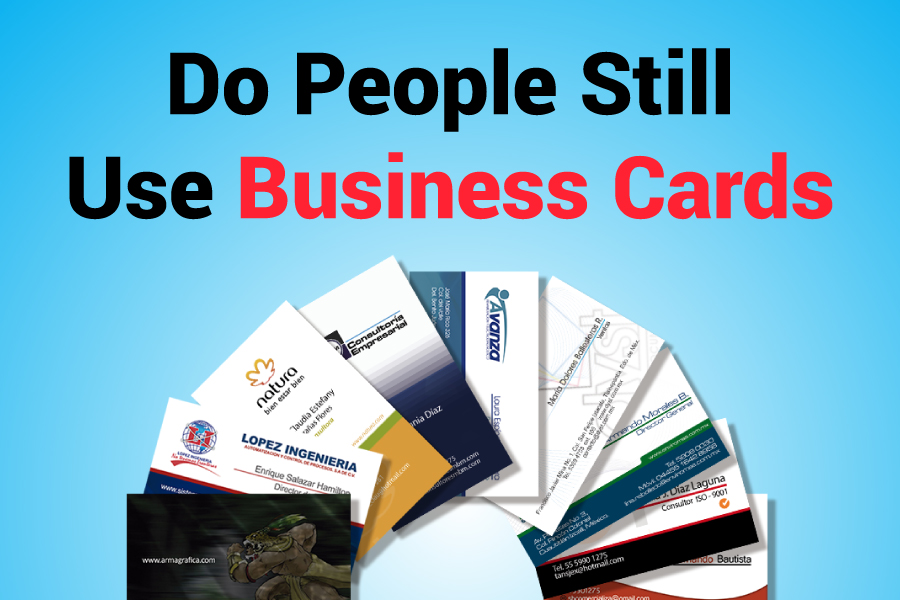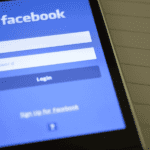Do people still use business cards? Despite the rise of smartphones and digital trends, the demand for business cards remains strong. About 10 billion business cards are printed annually in the U.S. alone, with 27 million business cards produced daily. A survey found that for each 2,000 business cards distributed, sales boosted by 2.5%.
These numbers highlight the continued relevance of business cards in the modern world and make a compelling case for creating your own. Business cards serve as a reminder of your identity and your offering.
They also provide an opportunity to connect with clients, helping them take the next step to contact you. This blog will explore the ongoing discussion about the relevance of physical business cards in the modern world.
Do People Still Use Business Cards?
Although many people use digital channels for communication, physical options are still needed. Professionals in various fields rely on them for meetings, networking events, and conferences. Even in some cultures, exchanging business cards is seen as a mark of professionalism and respect.
A study showed that 72% of individuals evaluate a business by its business cards’ quality. Now, assume your company does not have one at all. Business cards are different from other channels of communication. They are a simple and quick method for sharing contact information, encouraging follow-up conversations, and making a long-lasting impression.
Therefore, business cards remain a valuable tool in today’s networking world. Though digital methods have their conveniences, business cards offer several benefits that digital business cards don’t have.
Overview of Business Cards
Most people know what business cards are. Simply put, they are small cards that show your basic contact details, like your name, email, title, phone number, company name, and address. They are often used to easily and quickly share contact information with somebody you have just met.
Business cards are usually exchanged during meetings or introductions and are a physical reminder of what you do and who you are. Even with the rise of digital communication in today’s business world, business cards are still important. The earliest business card appeared in the 17th century in China and was used to announce the arrival of crucial guests.
These cards were usually made of ivory or wood and featured intricate calligraphy. Business cards became popular in Europe in the eighteenth century when the printing industry grew. Earlier European business cards were typically built with paper and had plain text without any colors or graphics.
The modern business card started to develop in the 19th century. The Industrial Revolution brought new printing technologies that enabled more detailed designs, and companies started using graphics and color to showcase their brands.
In the early 20th century, embossing and die-cutting techniques became famous for creating unique textures and shapes on business cards. Today, the possibilities for creating custom business cards are almost endless.
How Business Cards Have Adapted to Today’s World?
While the idea of exchanging contact information hasn’t changed, the trends, design, and concept have changed over time. Let’s look at how they have adapted to the modern world.
Unique Shapes and Sizes
Your business cards no longer have to stick to the typical dull standard size or rectangular shape. Custom shaped business cards, for example, let you impress your customers with unique and interesting designs that match their brand identity and style.
Usage of QR codes
QR codes make it easy for people to access more details about you or your company, like your portfolio, website, or social media profile.
Minimalism
Minimalism has recently become a popular design trend. This trend embraces clean, simple lines and a minimalist design, highlighting negative space and typography.
Sustainability
With growing sustainability awareness, numerous brand owners are opting for eco-friendly options. It includes using seed paper, recycled paper, or soy-based ink that can be planted to flourish herbs or flowers.
Kraft business cards are a famous choice for professionals and businesses that want to stand out while being environmentally responsible. These luxurious, ultra-thick cards are made from 100% recycled paper.
Trends continue to change as design choices alter and technology advances. However, the significance of a well-designed card in leaving a long-lasting impression on potential partners or clients stays the same.
How Business Cards Can Help You And Your Brand?
Here are a few reasons why business cards still matter and how they can benefit your business:
Accessible Anywhere
There are times when digital methods are restricted. For example, you can’t use smartphones in hospitals or on planes to share digital cards with clients. That’s why keeping a few business cards in your wallet is smart.
Convenience & Professionalism
What will you do if you do not have business cards when somebody asks for your contact details? Do you request they pull out their mobile device and type it in? Or do you frantically search for a pen and paper, looking foolish and disorganized?
The first option makes you look like you are giving a potential client additional work, while the second option makes you appear unprepared. Neither of these options is ideal for someone aiming to express professionalism, and as we all know, first impressions matter.
If you’ve business cards ready, you can easily reach into your wallet or pocket, hand a card over, shake hands, and gain a new business connection. Whether meeting someone new or at a networking event, having a business card adds credibility and shows your commitment to your industry.
The Quickest Way To Grow Your Business
Business cards allow small businesses to share important contact information instantly. You hand out a card with your contact details, like your email, phone number, and website. It allows potential customers to reach out and inquire about your services.
Business cards are still one of the best ways to make people aware of your small business. To ensure they are convenient and attractive, use a design size guide to stay on track during the design procedure.
Advertising and Networking Opportunities
Having business cards offers benefits at networking events. They make it simpler to establish connections with others by removing the requirement for lengthy conversations about exchanging contact details. Business cards let you dive right into networking without any awkward pauses.
Beyond sharing contact information, business cards are useful at networking events in other ways. They can also spark conversations or help break the ice in awkward moments. Furthermore, there are plenty of chances to leave your business cards in places that offer free advertising, like the community board at your coffee shop.
Many local companies still have fishbowls where you can drop in your business card for a chance to win a prize. While winning free food is excellent, the real value of dropping your card in these fishbowls goes beyond just a meal. Companies often look for local businesses to partner with when they need expertise or services.
Leaving your business card on their countertops or in their fishbowl shows that you’re a customer who knows their business and gives you an edge over the competition. Small businesses require services for everything, including construction, marketing, and landscaping.
It’s much easier for them to choose someone they already know than to spend time searching for the correct partner. So, leave your business cards in a fishbowl, and you may gain more than one free sandwich—you may gain a new client!
Create Trust
A new business owner’s biggest challenge is creating trust with their target audience. People prefer to purchase from companies they see as safe and secure. This is the reason global companies thrive when launching new products or services. When trying out a business card maker, use it to explore various design ideas and see which one fits your brand personality best.
Make sure you use the correct graphic design software to produce a business card that creates trust in your products or services.
Acts As A Regular Reminder
When people search for a service, they usually turn to the internet first. However, even with a strong SEO strategy, your business can easily get lost in the flood of Google results. How often have you put a business card in your wallet or tossed it on your desk, only to see it every time you open your wallet or glance away from your computer? Probably a lot.
When others keep your business card, your name becomes more known to them. When they require your services, they’ll likely reach out to you first. If they search online, your name and company will stand out, giving them a reason to visit your website over others.
Conclusion
Do people still use business cards? Yes, business cards remain relevant in today’s digital world. These small paper cards offer a personal touch that can effectively promote a business. With high-quality paper and a fantastic card design, business cards help small businesses build trust.
Business cards are more than just a way to share contact information; they are a powerful promotional tool. Even in 2024, business cards are essential for forming relationships and networking. While digital contact exchanges are common, business cards still play a crucial role in making introductions to potential clients, employers, or partners.
Investing in high-quality physical business cards can leave a lasting impression and offer advertising opportunities that digital methods can’t. Investing in high-quality physical business cards can leave a lasting impression and offer advertising opportunities that digital methods can’t.



